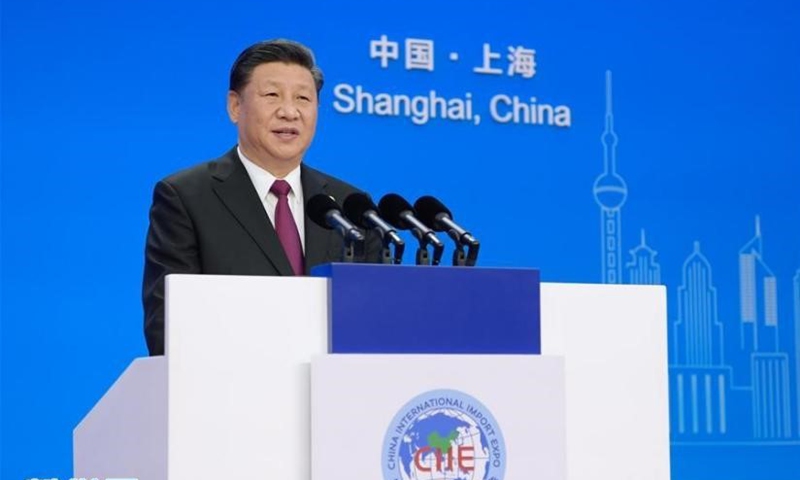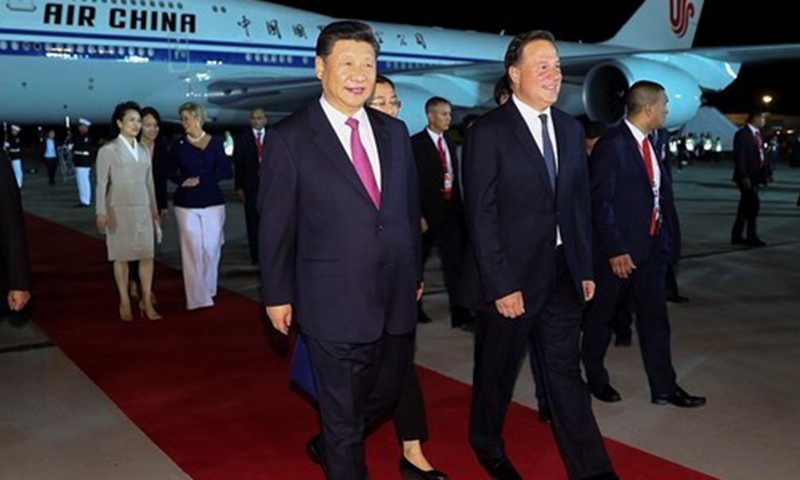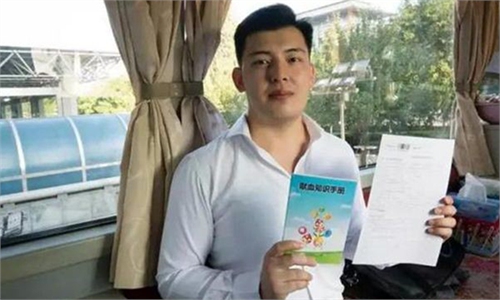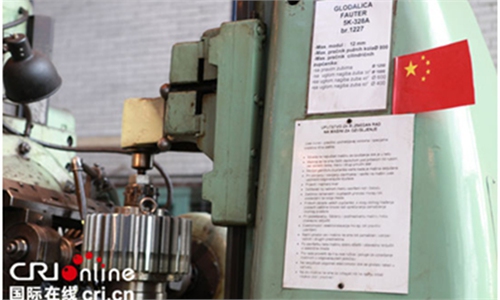Located at the isthmus of Central America, Panama is known for the Panama Canal, Geisha coffee, and tropical fruits like pineapple and banana. On June 13, 2017, China established diplomatic relations with Panama, a country then little known to most Chinese but went on to impress the Chinese with its many delicacies.
Pineapple is a major agricultural product of Panama. The sugar-rich, golden-colored Panamanian pineapple has a special aroma and taste. It is deemed the sweetest pineapple in the world. While Europe has long been its major buyer, few Chinese had the chance to taste Panama's golden pineapple. Luckily, in the following year of the establishment of China-Panama diplomatic ties, the first China International Import Expo (CIIE) was held, bringing the golden pineapple just one step away from the Chinese market.

The popularity of the pineapple among the buyers and visitors at the CIIE revealed to the Panamanian businesses the great potential of the Chinese market. While they were excited about China's demand for high-end fruits, Chinese firms showed a keen interest in importing quality foreign fruits, boding well for a promising partnership. There was only one hurdle left: quarantine clearance.

In his keynote speech delivered at the opening ceremony of the first CIIE, President Xi Jinping underscored China's commitment to further stimulate the potential for increased imports, broaden market access, and pursue inclusive development for the benefit of all. The entry of Panamanian pineapple into the Chinese market is an illustration of the spillover benefits of the first CIIE and a good example of Belt and Road as well as China-Panama trade cooperation.
China holds the CIIE as a platform to share the fruits of its development with more countries and their peoples and to open up still wider to the rest of the world. Through the avenue of the CIIE, more and more specialty products from developing countries have entered China's vast market, and companies from the least developed countries have had an opportunity to engage their counterparts in China and elsewhere and integrate into the global trading system. There will not and should not be anywhere left behind in the CIIE's vision of "buying globally and benefiting globally." In this age of economic globalization, economies depend on each other and their interests are entwined like never before. Treating each other with sincerity and pursuing shared benefits represent the order of the day. With China continuing to open up, more products will become highlights in free trade and friendly exchanges, just like the golden pineapple of Panama.
Pineapple is a major agricultural product of Panama. The sugar-rich, golden-colored Panamanian pineapple has a special aroma and taste. It is deemed the sweetest pineapple in the world. While Europe has long been its major buyer, few Chinese had the chance to taste Panama's golden pineapple. Luckily, in the following year of the establishment of China-Panama diplomatic ties, the first China International Import Expo (CIIE) was held, bringing the golden pineapple just one step away from the Chinese market.

President Xi Jinping attends the Opening Ceremony of the first CIIE and delivers a keynote speech in Shanghai
A total of 23 Panamanian companies took part in the first CIIE held in November 2018, presenting pineapple and other specialties. Since the Panamanian pineapple had yet to gain quarantine approval for trading in China, its presence at the CIIE was made possible only with a special permission from Shanghai Customs, with the authorization of the General Administration of Customs. It was an impressive debut, opening the way for a great business opportunity.The popularity of the pineapple among the buyers and visitors at the CIIE revealed to the Panamanian businesses the great potential of the Chinese market. While they were excited about China's demand for high-end fruits, Chinese firms showed a keen interest in importing quality foreign fruits, boding well for a promising partnership. There was only one hurdle left: quarantine clearance.

President Xi Jinping arrives in Panama City on December 2, 2018 local time for a state visit to the Republic of Panama
On the eve of President Xi Jinping's state visit to the Republic of Panama in December 2018, the Panamanian newspaper La Estrella de Panama published an article by President Xi titled "Working Together for a Shared Future." In the article, the President wrote, "Under the framework of Belt and Road cooperation, the two sides have signed quite a number of agreements in such areas as trade, finance, maritime affairs, civil aviation, tourism, culture and education. Panama's specialty agro-products like beef, pineapple and seafood are undergoing inspection and quarantine procedures for export to China, and will soon find their way to the dinner tables of the Chinese people." Later, in the presence of the two presidents, China and Panama officially signed a phytosanitary protocol for the export of fresh Panamanian pineapple to China, making it the first foreign fruit to gain access to the Chinese market after the first CIIE. In July 2019, the first shipment of Panamanian pineapple arrived in Shanghai after a 72-hour flight, kick-starting the export of Panamanian pineapple to China.In his keynote speech delivered at the opening ceremony of the first CIIE, President Xi Jinping underscored China's commitment to further stimulate the potential for increased imports, broaden market access, and pursue inclusive development for the benefit of all. The entry of Panamanian pineapple into the Chinese market is an illustration of the spillover benefits of the first CIIE and a good example of Belt and Road as well as China-Panama trade cooperation.
China holds the CIIE as a platform to share the fruits of its development with more countries and their peoples and to open up still wider to the rest of the world. Through the avenue of the CIIE, more and more specialty products from developing countries have entered China's vast market, and companies from the least developed countries have had an opportunity to engage their counterparts in China and elsewhere and integrate into the global trading system. There will not and should not be anywhere left behind in the CIIE's vision of "buying globally and benefiting globally." In this age of economic globalization, economies depend on each other and their interests are entwined like never before. Treating each other with sincerity and pursuing shared benefits represent the order of the day. With China continuing to open up, more products will become highlights in free trade and friendly exchanges, just like the golden pineapple of Panama.



